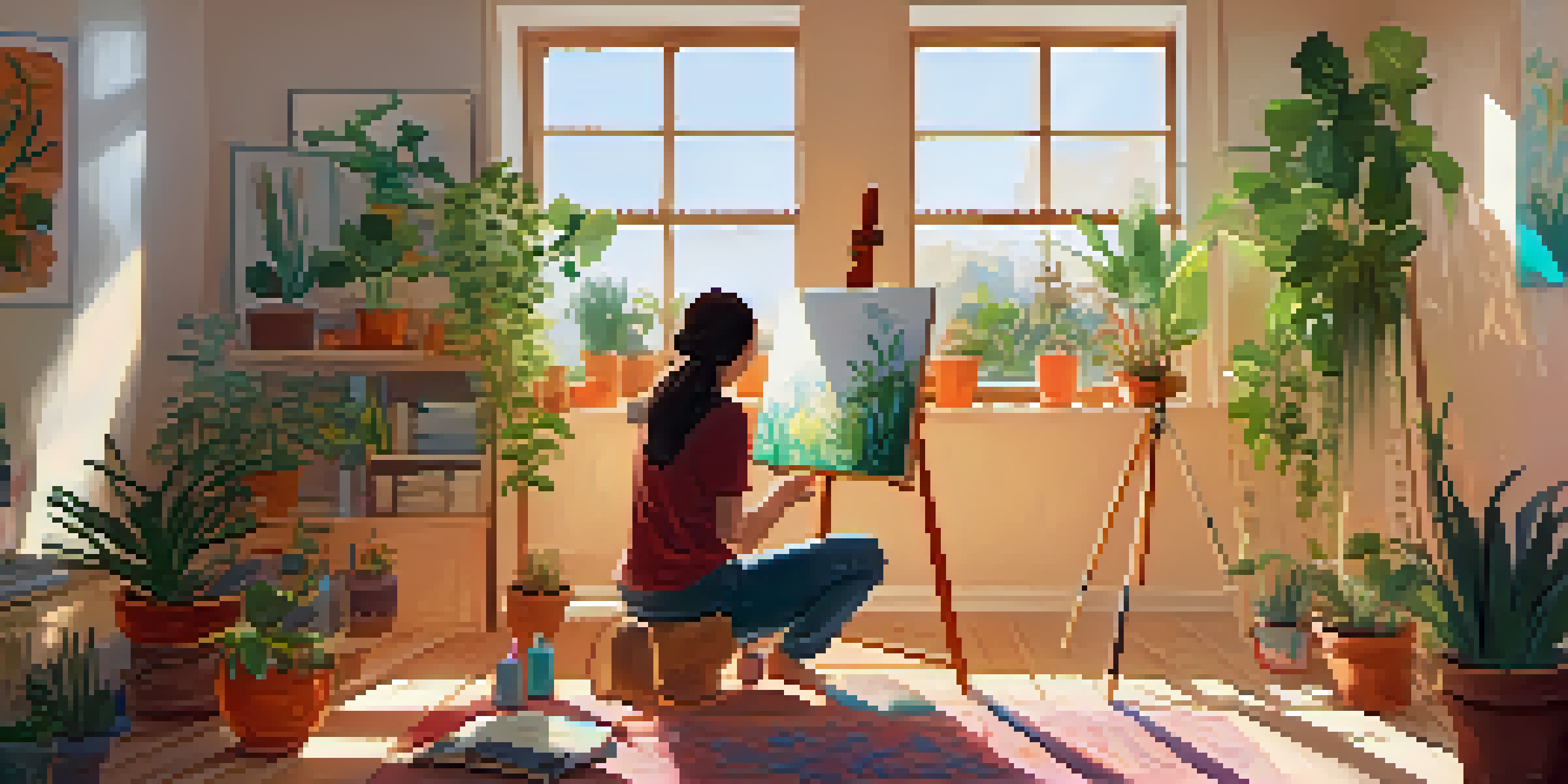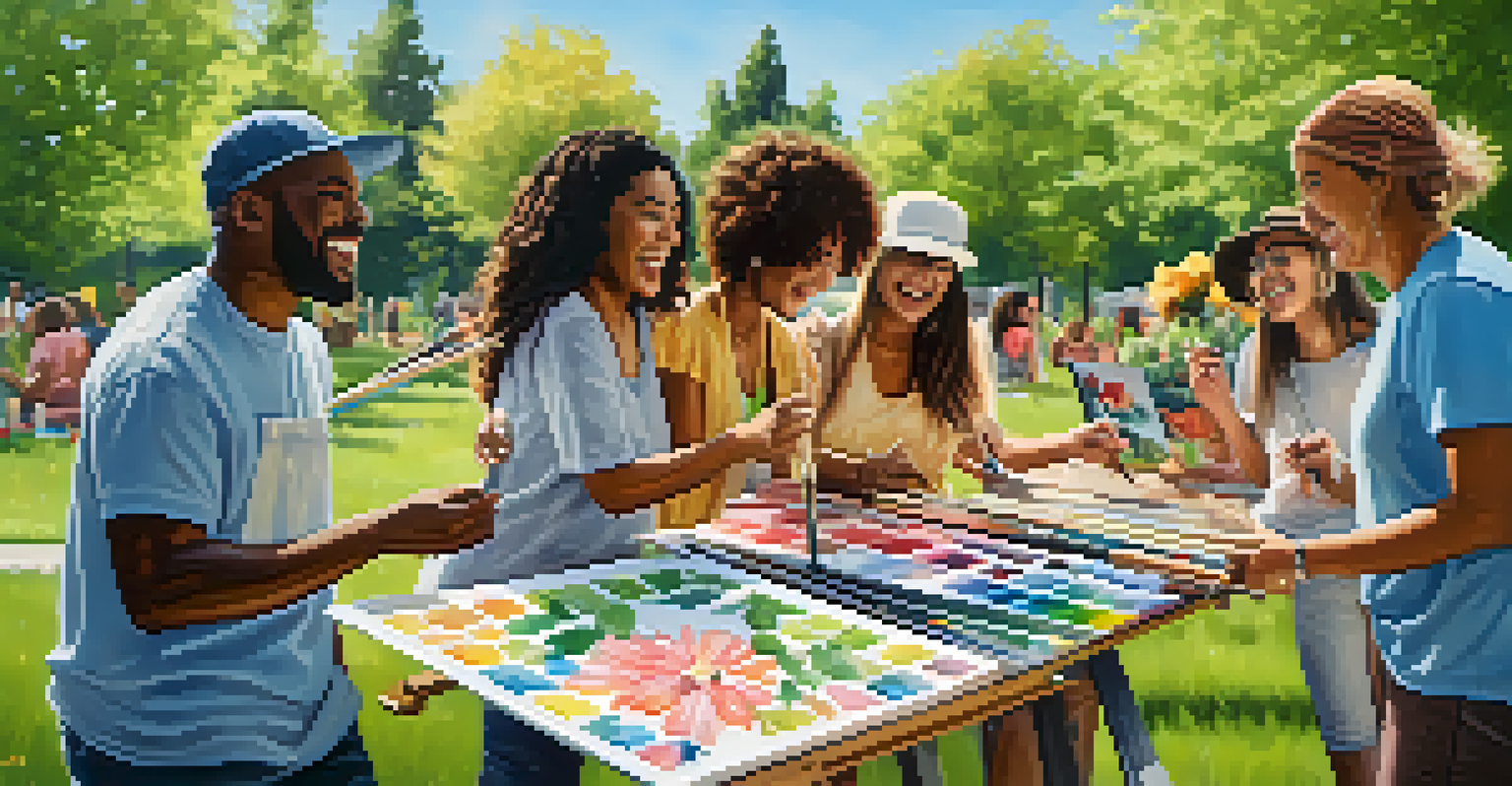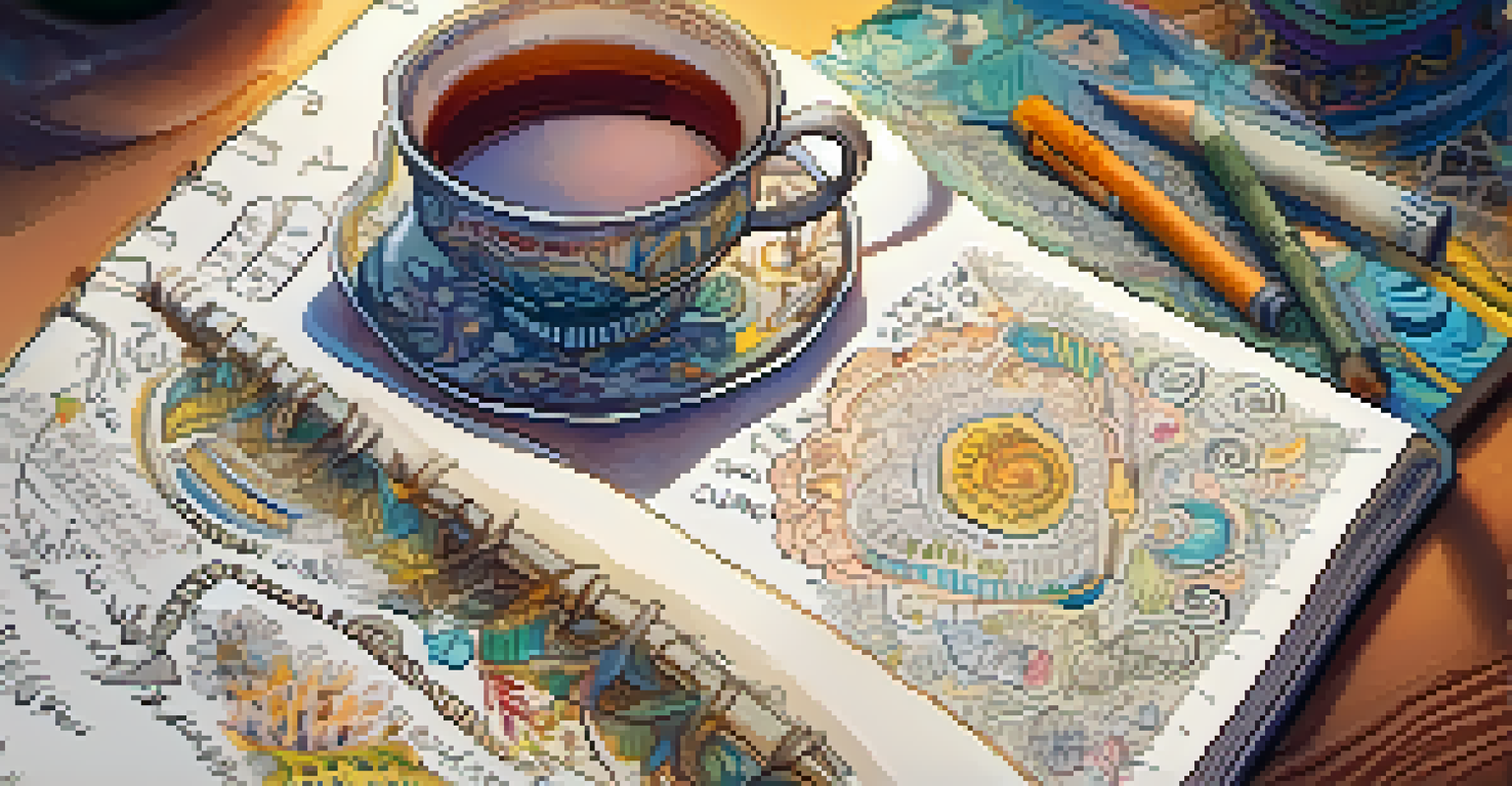Exploring the Relationship Between Creativity and Mental Health

Understanding Creativity: More Than Just Art
Creativity isn't limited to painting or writing; it's a way of thinking that can be applied to problem-solving in everyday life. It encourages us to explore unique perspectives and develop innovative solutions. For example, a chef experimenting with flavors is engaging in creative thinking, while a scientist finds new ways to approach research. This broad definition of creativity allows us to appreciate its role across various domains.
Creativity is intelligence having fun.
The concept of creativity extends beyond traditional artistic fields. It can be found in how we interact with each other and the world around us. When we think creatively, we tap into our innate ability to adapt and thrive, which can have profound implications for our mental well-being. This flexibility in thinking can help us navigate life's ups and downs more effectively.
Moreover, creativity fosters emotional expression, allowing individuals to convey feelings and thoughts in a way that words sometimes cannot. This expression is vital for mental health, offering a release for pent-up emotions. Whether through music, dance, or visual arts, creativity serves as a powerful outlet.
The Link Between Creativity and Mental Illness
Numerous studies suggest a connection between creativity and mental health conditions, such as depression and anxiety. Artists, writers, and musicians often report struggles with mental health, leading to the stereotype of the 'tortured artist.' This connection may stem from the heightened sensitivity and emotional depth that often accompany creative individuals.

While creativity can be a coping mechanism for those facing mental health challenges, it can also be a double-edged sword. For instance, the very traits that fuel creativity—intense emotions and deep introspection—can also lead to mental health struggles if not managed properly. This complex relationship underscores the need for a balanced approach to creativity.
Creativity Enhances Problem Solving
Creative thinking goes beyond art, offering innovative solutions to everyday challenges.
Importantly, not all creative individuals experience mental health issues, nor do all those with mental health challenges engage in creative pursuits. However, recognizing this link can help us understand how creativity might serve as both a symptom and a remedy in the context of mental health.
Creativity as a Healing Tool
Engaging in creative activities can significantly benefit mental health. Creative expression has been shown to reduce stress, promote relaxation, and even alleviate symptoms of anxiety and depression. For example, art therapy has gained recognition for its effectiveness in helping individuals process emotions and trauma through creative means.
The chief enemy of creativity is good sense.
The act of creating can serve as a mindfulness practice, drawing our focus away from negative thoughts and into the present moment. It allows individuals to immerse themselves in the process, whether they're painting, writing, or playing music. This shift in focus can lead to a sense of accomplishment and improved self-esteem.
Moreover, creativity fosters community, providing opportunities for individuals to connect with others who share similar passions. This social aspect can enhance feelings of belonging and support, important factors in maintaining mental health. Participating in group art projects or writing workshops can create bonds that help individuals feel less isolated.
The Science Behind Creativity and Mental Health
Research has shown that engaging in creative activities can lead to changes in brain chemistry, promoting the release of dopamine, a neurotransmitter linked to feelings of pleasure and reward. This biological response can enhance mood and encourage continued creative engagement. It's fascinating to think about how our brains respond to creativity on a chemical level.
Studies have also demonstrated that creative individuals often exhibit higher levels of divergent thinking, which is the ability to generate multiple solutions to a problem. This cognitive flexibility not only enhances creativity but also contributes to resilience in mental health. Individuals with strong divergent thinking skills may find it easier to cope with stress and adversity.
Creativity Aids Mental Health
Engaging in creative activities can significantly reduce stress and improve emotional well-being.
As we delve into the science of creativity, it becomes clear that the mind's creative processes are intricately linked to our emotional state. Understanding this relationship can help mental health professionals harness creativity as a therapeutic tool, ultimately benefiting those seeking support.
Cultivating Creativity for Better Mental Health
Incorporating creativity into daily life can be a simple yet effective way to enhance mental well-being. Whether through journaling, doodling, or trying a new recipe, small creative acts can make a significant difference. The key is to find what resonates with you and to make it a regular part of your routine.
Setting aside time for creative expression can serve as a form of self-care, allowing individuals to recharge and process emotions. Even if you don't consider yourself 'artistic', engaging in any form of creativity can be therapeutic. Remember, the goal isn't perfection but rather the joy of expression.
Additionally, creating a supportive environment that encourages creativity can further amplify its benefits. Surrounding yourself with like-minded individuals can inspire new ideas and foster collaborative projects. This sense of community can reinforce the positive effects of creativity on mental health.
Barriers to Creative Expression in Mental Health
Despite the benefits of creativity, many individuals face barriers that hinder their ability to express themselves. Fear of judgment, perfectionism, and self-doubt can stifle creativity and prevent individuals from engaging in artistic pursuits. These barriers can be particularly pronounced in those struggling with mental health issues, where negative self-talk can take center stage.
It's essential to acknowledge these obstacles and work towards overcoming them. Adopting a growth mindset, where mistakes are seen as learning opportunities rather than failures, can help individuals embrace creativity more freely. This shift in perspective can empower individuals to take risks in their creative endeavors.
Barriers to Creative Expression Exist
Fear of judgment and perfectionism can hinder individuals from fully embracing their creative potential.
Creating a non-judgmental space for expression, whether at home or in a group setting, can also alleviate some of these pressures. Encouraging open dialogue about creativity can help individuals feel safe to share their work and ideas. Ultimately, dismantling these barriers is crucial for fostering a healthy relationship with creativity.
The Future of Creativity in Mental Health Care
As we move forward, the integration of creativity into mental health treatment is becoming increasingly recognized. Mental health professionals are exploring creative therapies, such as art, music, and drama therapy, as viable options for healing. This shift is rooted in the understanding that creativity can complement traditional therapeutic approaches.
Further research into the relationship between creativity and mental health will likely continue to shape our understanding of this dynamic. By examining how different forms of creativity affect mental well-being, we can develop more tailored interventions. This evolving field offers promising opportunities for those seeking support.

Ultimately, embracing creativity as a valuable tool in mental health care can lead to more holistic and effective treatment options. As we continue to explore this relationship, we may find new ways to empower individuals to harness their creativity for healing and personal growth.